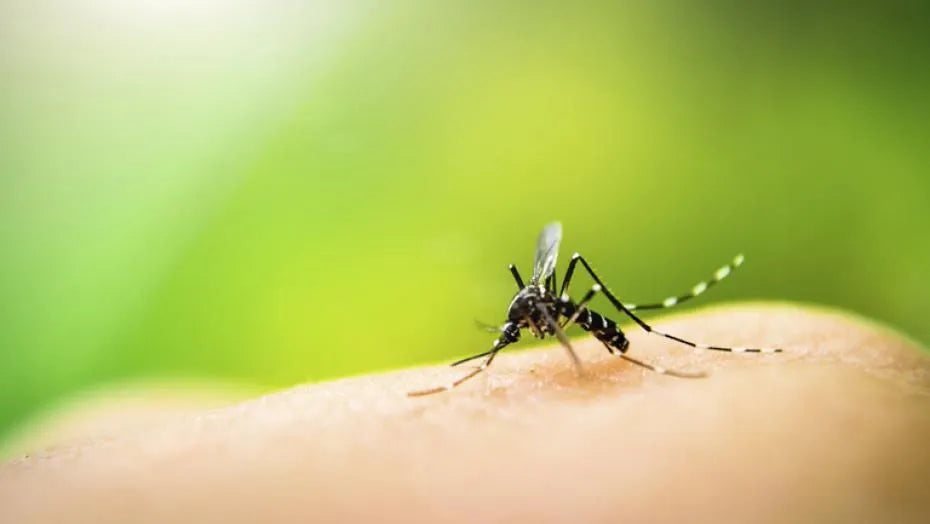
Everything You Need to Know About Mosquitoes
Share
Tiny Terror or Ecological Wonder?
Mosquitoes: the mere mention of them can make your skin crawl or itch. These tiny, buzzing insects are infamous for ruining summer evenings, causing sleepless nights, and spreading deadly diseases. But there’s more to mosquitoes than their bad reputation. In fact, they play a surprising role in nature and are fascinating in their own right.
Whether you're curious about how mosquitoes live, why they bite, or how to keep them at bay, this guide covers it all.
What Exactly Is a Mosquito?
Mosquitoes are small, long-legged flying insects belonging to the family Culicidae. There are over 3,500 known species, but only a few hundred actually bite humans and even fewer are responsible for disease transmission.
Key facts:
-
Only female mosquitoes bite because they need the protein in blood to develop eggs.
-
Males are harmless and survive on nectar and plant juices.
-
Mosquitoes have a slender body, two wings, and a long needle-like mouthpart called a proboscis.
Where Do Mosquitoes Live?
Mosquitoes are found nearly everywhere on Earth except Antarctica. They thrive in warm, humid environments and are especially common in:
-
Tropical and subtropical regions
-
Marshes, wetlands, and areas with standing water
-
Urban neighborhoods with poor drainage or stagnant water sources
Mosquitoes lay their eggs in or near water. So, any place with puddles, birdbaths, clogged gutters, or containers can become a breeding ground.
The Mosquito Life Cycle: From Egg to Adult
Mosquitoes go through a complete metamorphosis with four stages:
-
Egg – Laid on or near stagnant water
-
Larva – Aquatic stage, often seen wriggling below the surface
-
Pupa – A resting stage before transformation
-
Adult – Emerges ready to fly and (if female) bite
In ideal conditions, the entire cycle can be completed in just 7–10 days.
Why Do Mosquito Bites Itch?

That irritating itch comes from your body’s immune response. When a female mosquito bites, she injects saliva into your skin to keep your blood from clotting. Your immune system sees this saliva as an invader and releases histamines, causing swelling, redness, and that maddening itch.
Tip: Scratching makes it worse, as it can increase inflammation or lead to infection. Instead, try ice, antihistamines, or anti-itch creams for relief.
The Real Danger: Diseases Carried by Mosquitoes
Mosquitoes aren’t just annoying—they're dangerous. In fact, they’re considered the deadliest animals on Earth, responsible for over 700,000 deaths per year. They transmit a range of serious illnesses, including:
-
Malaria – Spread by Anopheles mosquitoes
-
Dengue Fever – Transmitted by Aedes aegypti
-
Zika Virus – Linked to birth defects in newborns
-
Chikungunya – Causes severe joint pain
-
West Nile Virus – Common in North America
-
Yellow Fever – Preventable with vaccination
Some of these diseases have no cure or treatment, making prevention even more critical.
Mosquitoes: Villains or Vital?
Believe it or not, mosquitoes serve ecological purposes too. While it's tempting to imagine a world without them, their removal would disrupt ecosystems.
They play important roles:
-
Pollinators: Males and some females feed on nectar and help pollinate flowers.
-
Food source: Mosquito larvae and adults feed birds, bats, frogs, fish, and insects.
-
Ecosystem indicators: Their presence or absence can signal changes in water quality or climate.
How to Protect Yourself From Mosquitoes
Preventing bites is the best way to avoid mosquito-borne illnesses. Here are proven strategies:
-
Use insect repellent containing DEET, picaridin, or oil of lemon eucalyptus
-
Wear long sleeves and pants, especially at dusk and dawn
-
Install screens on windows and doors to keep them out
-
Sleep under mosquito nets in high-risk regions
-
Eliminate standing water around your home (check planters, gutters, buckets)
The Future of Mosquito Control
Science is rapidly evolving in the fight against mosquitoes. Promising developments include:
-
Genetically modified mosquitoes that can't reproduce or transmit disease
-
Biological control using bacteria like Wolbachia to block virus transmission
-
Vaccines for diseases like dengue and malaria
These new methods aim to reduce mosquito populations and the diseases they spread without harming the environment.
Final Thoughts
Mosquitoes may be tiny, but their impact is massive. They are both a natural wonder and a global health threat. While it’s easy to hate them for the discomfort and danger they bring, understanding their behavior, life cycle, and role in the ecosystem is the key to managing their impact and staying bite-free.
So the next time you hear that familiar high-pitched whine, you’ll know: there’s a whole world behind that buzz.

